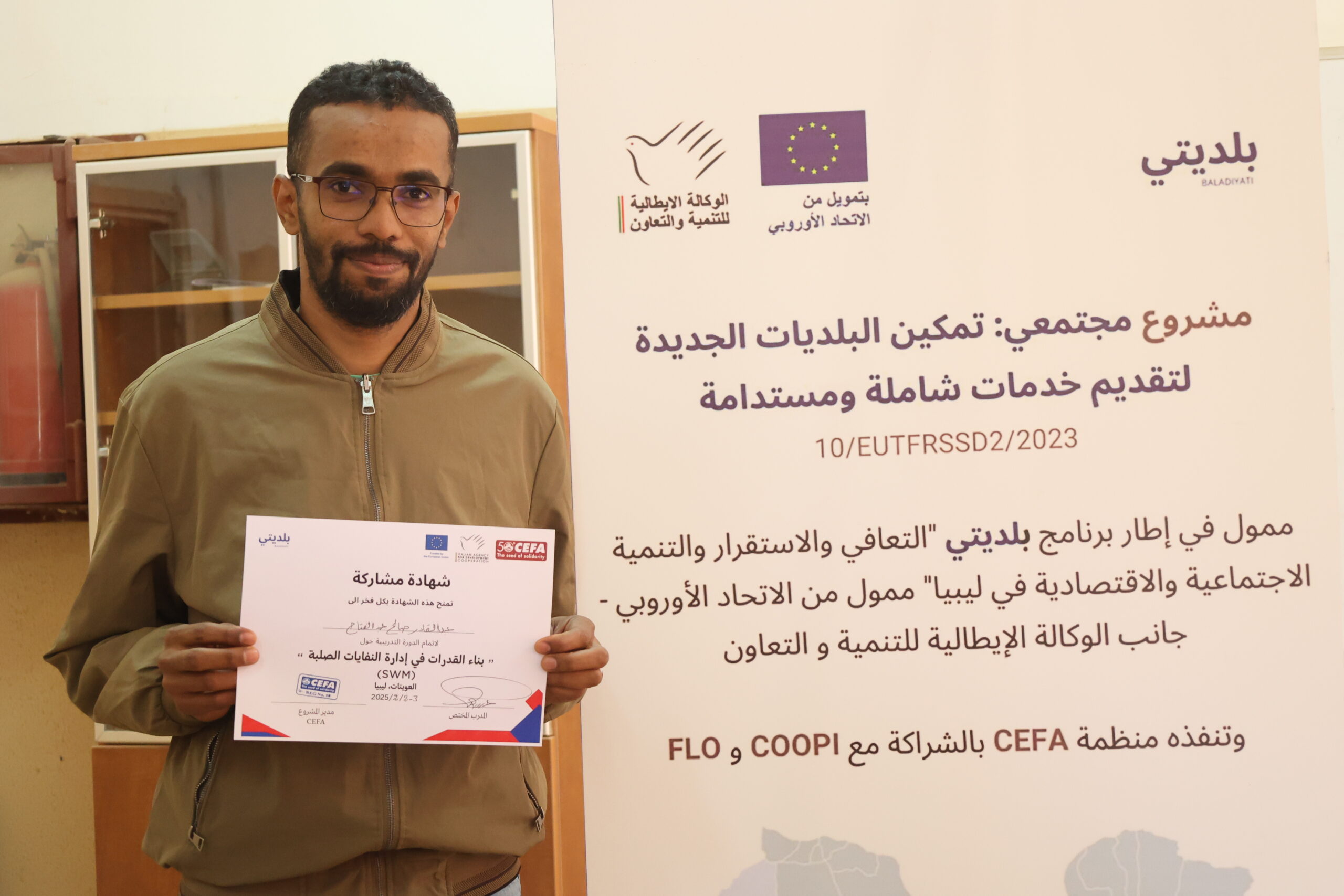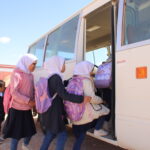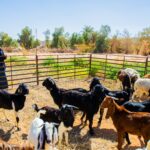For years, waste management in Al-Awainat has been a growing concern. Every morning, Sidi Mohamed Abdelkader, a municipal sanitation worker, would walk through streets lined with uncollected rubbish, blocked drainage channels, and waste piling up in open spaces. He recalled: “Without the right tools or a structured system, we struggled to keep up. We did our best, but it was never enough.”
The lack of a structured waste management system not only affected public spaces but also led to increased pollution, unsanitary conditions, and water contamination. For Sidi Mohamed, the issue was more than just an unpleasant sight—it was a real threat to public health. He and his colleagues knew they needed a solution, but without proper training or equipment, such change seemed out of reach.
Recognizing the urgency of the situation, the municipality partnered with the Mujtam3ay project to address the town’s growing waste crisis. As a result, a Solid Waste Management workshop was organized to equip municipal workers with the skills and knowledge needed to improve waste collection and disposal. The initiative was implemented by CEFA and COOPI under the Italian Agency for Development Cooperation’s (AICS) component of the Baladiyati Programme.
When news of the workshop reached the municipality, it felt like a much-needed response to the ongoing crisis. Over two days, Sidi Mohamed and nine other colleagues from the Municipal Environmental and Sanitation Office and the Public Hygiene Company gathered at Ali Altegani School to learn how to improve waste collection, recycling, and disposal.
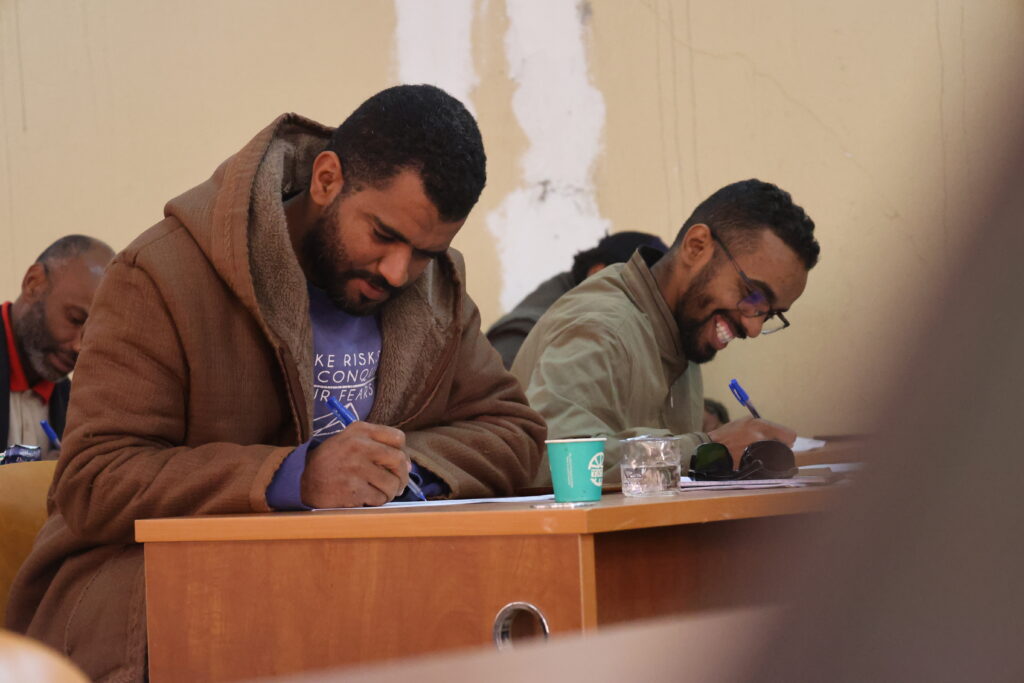
The workshop introduced best practices in waste management, focusing on sustainability, efficiency, and proper use of municipal waste equipment. Through interactive discussions, hands-on exercises, and case studies, the participants explored practical strategies to prevent waste accumulation rather than just reacting to the problem. They also learned how to properly use and maintain the tools provided to the municipality, ensuring long-term sustainability.
For Sidi Mohamed, the workshop represented an important step forward: “Before this workshop, waste management was a daily struggle. We lacked the right methods for collection and disposal, and many areas were left without proper waste management services. Now, we have clear strategies that will help us keep Al-Awainat cleaner and healthier”.
For him, one of the most valuable lessons learned was the importance of waste separation and recycling, which can significantly reduce the amount of waste and ease the burden on landfill sites. The workshop also shed light on the role of community awareness, showing how collective efforts are essential for keeping the environment clean.
As Sidi Mohamed explains, “Sanitation is not just about collecting waste—it’s about changing mindsets, educating the community on proper disposal, encouraging recycling, and making sure we use our resources efficiently.”
Beyond the workshop, Sidi Mohamed remains committed to applying what he has learned. He is determined to continue advocating for cleaner public spaces, confident that with the right tools, knowledge, and community collaboration, Al-Awainat can transform its waste management system for good.
Thanks to the Baladiyati Programme, this initiative provided much-needed support toward a more sustainable and healthier future for the municipality as a whole—one where training, education, and community engagement create lasting change.
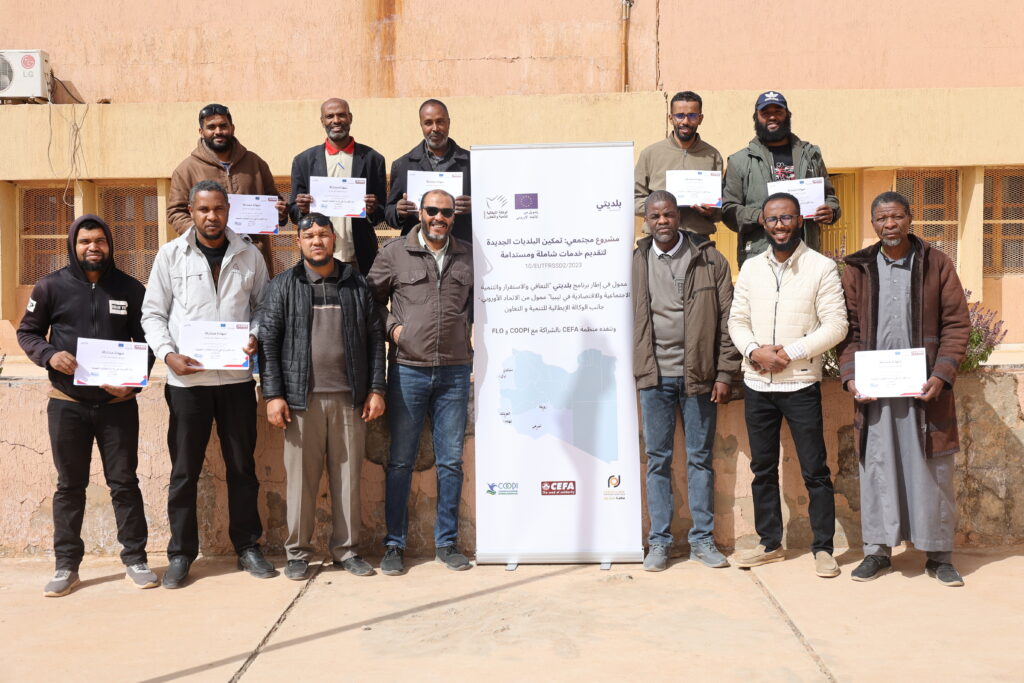
This story was written by AICS based on content collected on ground by CEFA – COOPI
Photo credit: CEFA – COOPI

